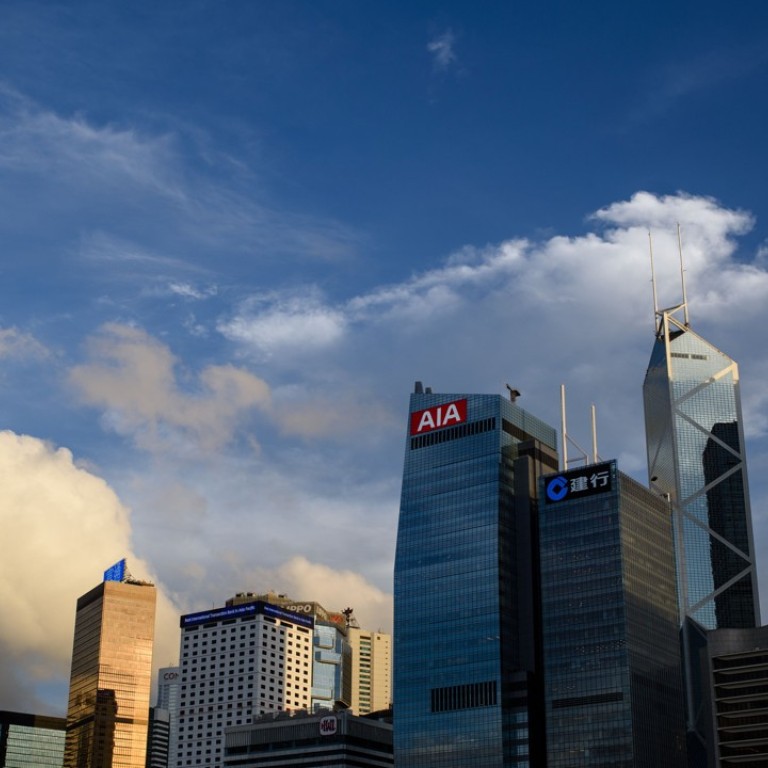
Will chums among Hong Kong’s financial gatekeepers hold the barbarians at bay?
If you want to do financial business in Hong Kong, you will cross paths with these men and their agencies. How they work together may determine your future.
These are important days for Hong Kong’s financial and insurance community. There are far-reaching debates within our city and major global trends under way that will determine the financial future of Hong Kong. It’s been 20 years since Britain’s lease on Hong Kong ended, and the city’s governance was returned to mainland China, and this has prompted plenty of comparisons between the world of 1997 and the world of 2017.
Insurance sales are up almost eightfold, prompting the creation of a regulatory agency to deal with it. Stock market capitalisation is up eightfold as well, while banking assets have doubled and Hong Kong has become a world leader in offshore yuan transactions and the IPO business of raising capital. The driving force behind all of this has been the economic growth and development of mainland China.
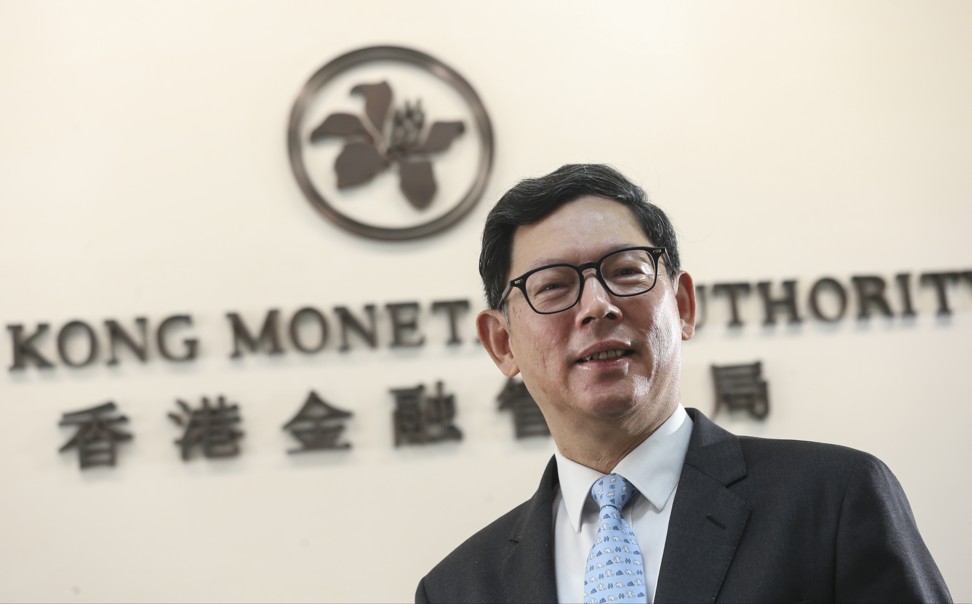
Set against this 20-year upward trajectory has been some stark financial challenges. Just after the handover itself, there was the Asian Financial Crisis of 1997-1998, and in 2008, the Global Financial Crisis. Hong Kong has not been alone in tapping into the China story; other financial centres have been competing for the same business.
Relatively few technology firms have decided to call Hong Kong home, preferring listings in more forgiving US equity markets. There is also the continued requirement of dealing with market malpractice and upgrading market quality.
Against this backdrop, Hong Kong’s financial gatekeepers have never been subject to any sort of qualifications check or test for their jobs, nor is there such a qualification for any of the jobs at these regulatory agencies. Our four gatekeepers come from different backgrounds – Chief Executive of the Hong Kong Monetary Authority Norman Chan is a career civil servant; Chairman of the Securities and Futures Commission Carlson Tong is a retired accountant; Chairman of the Insurance Authority Moses Cheng is a former lawyer; and Hong Kong Exchanges and Clearing (HKEX) Chairman Chow Chung Kong a former business executive.
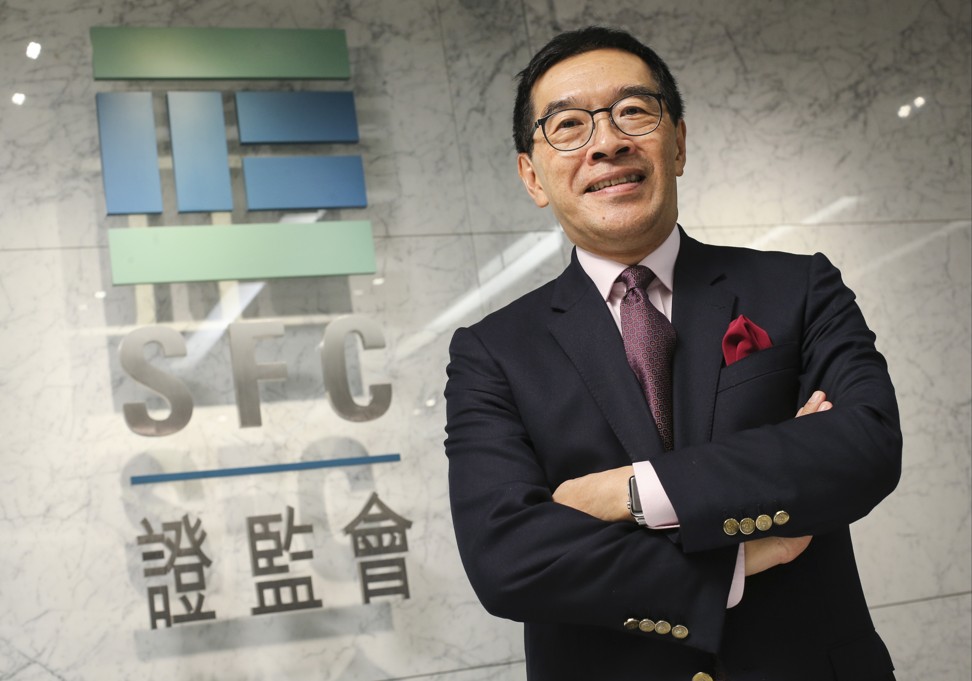
This kind of chumminess may have sufficed for the previous 20 years, but will it do for the next 20 years?
Hong Kong financial firms and markets are tightly linked to the mainland, and the four will need to work more closely with their mainland counterparts on cross border regulation. Nearly 40 per cent of insurance policies are purchased by mainland Chinese, over 60 per cent of our market cap are Chinese companies, and mainland Chinese are now trading 10 per cent of turnover via the two stock connects.
Meanwhile, HKEX is looking for big companies to raise funds through initial public offerings, including the proposed listing by Saudi Aramco, which if it happens, is expected to raise about US$100 billion (HK$780 billion), the biggest ever sum for an IPO. That estimate is based on the expected five per cent equity offering, valuing the company at US$2 trillion.
Another great debate opened by the HKEX concerns a new board that would allow weighted voting rights.
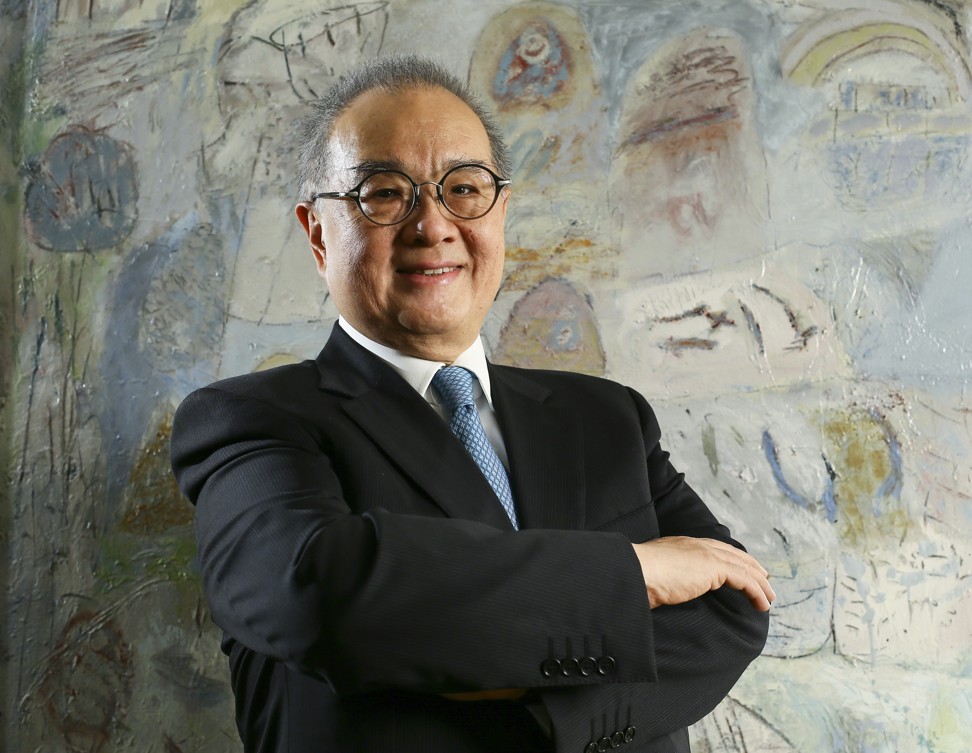
Diehards prefer one share, one vote. Several big technology firms have stated their wish for preferred voting rights, to insulate the owners from quarterly market pressures. The sacking of Uber Chief Executive Travis Kalanick and the glaring underperformance of Snap Inc. (where shareholders receive no voting rights at all) have added some fuel to the fire in this debate (see: A Dual Discussion, p. 36).
Added to these turbulent events are the growing challenge of fintechs and new technology in general. The HKMA in particular has tried to harness this with the introduction of testing zones for financial technology (the so-called Sandbox) though often Hong Kong’s efforts have lagged behind those of Singapore, which has been pushing ahead more aggressively. Singapore’s “sandbox” scheme allows banks and small fintech start-ups to test their tech, while in Hong Kong, the HKMA allows only banks to do so.
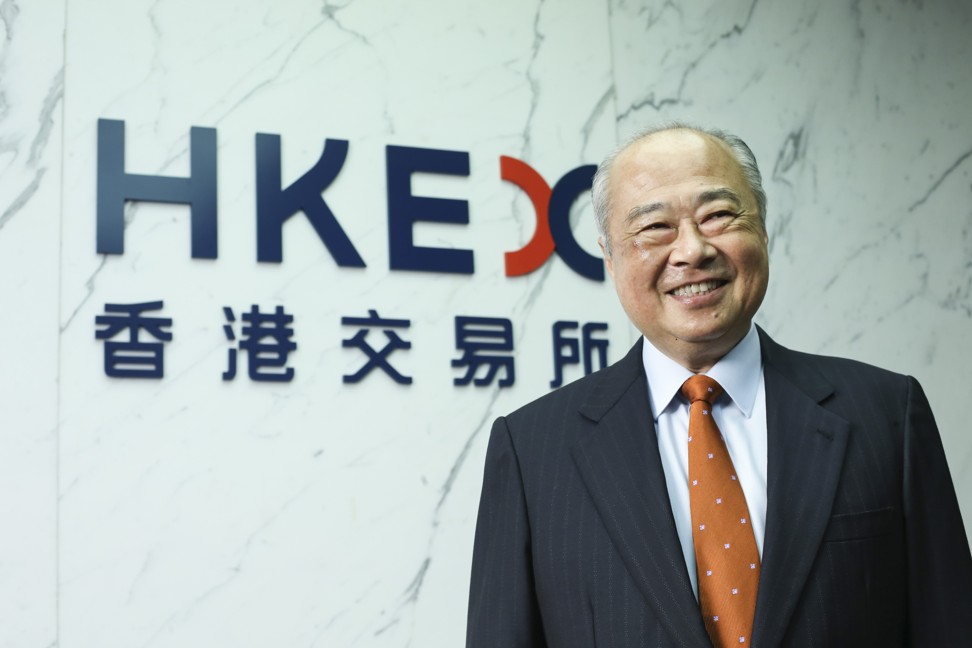
Singapore has adopted the Integrated Approach, while Hong Kong continues to use the Institutional Approach, dividing responsibility between the four men we interview here. Each of our financial gatekeepers believes that our current approach works well, but it requires that everyone remain friends and talking to each other at all times. If there is one thing they agree on, it is this.
That of course raises the question: what happens when the friendships break down? Friendships don’t last through every phase of life, and as many of Hong Kong’s wealthiest families can attest, smooth successions are not always easy. All four regulators are now in their 60s. Given their emphasis on the importance of maintaining friendships and communication, it’s worth asking about succession plans for each of these agencies.
We can look ahead to ever more challenges in the financial services industries. One very big question is how we will face the regulatory aspect of those challenges, and who will be the gatekeepers of the next 30 years?
(This an article that appears in the July/August issue of The Peak magazine, available now at selected bookstores and by invitation.)

